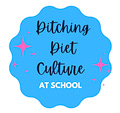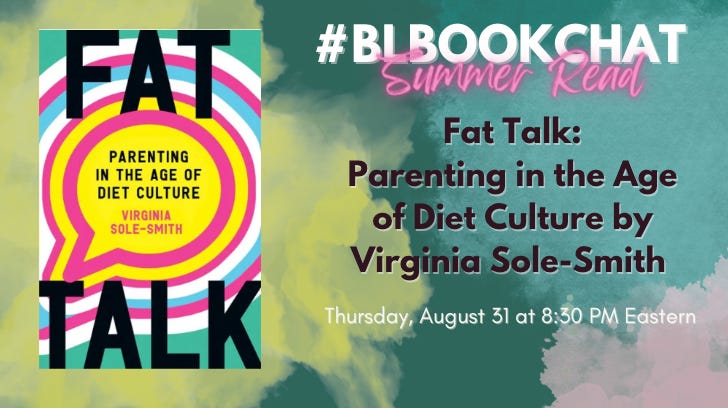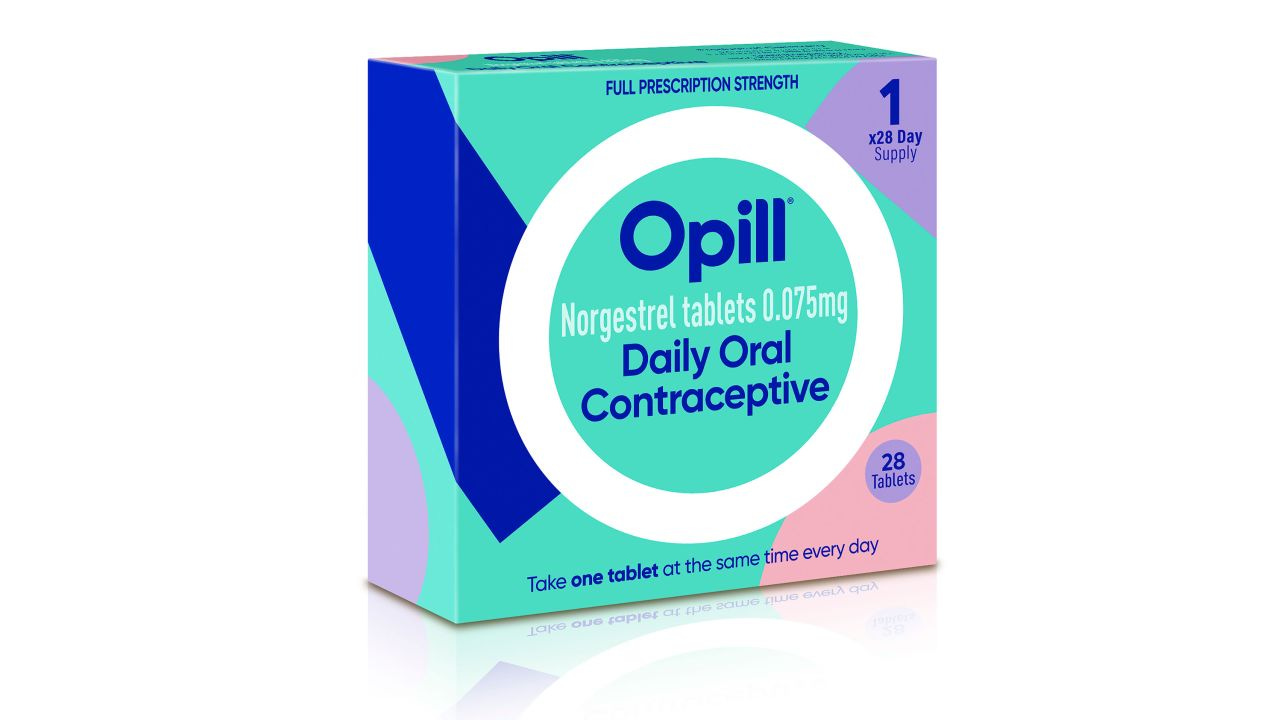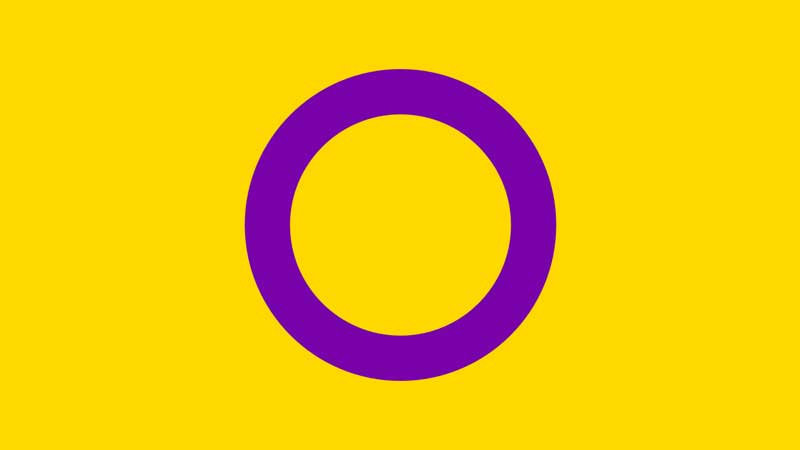Ditching Diet Culture At School
Tools for fighting anti-fat bias in schools, how consent education can influence broader culture, and a new video that asks "What is Pleasure?" PLUS: The birth control pill goes over-the-counter.
Curriculum and Resources
The Ditching Diet Culture At School Toolkit
“Anti-fatness is purposeful and systemic and learned,” middle school English teacher Cait O’Connor told Edutopia last year. O’Connor is helping teachers unlearn it by sharing her updated #DitchingDietCultureAtSchool toolkit, a collection of curated resources for teachers, students and communities looking to learn more about how to dismantle diet culture.
”This resource was birthed out of my own eating disorder experience, and the (ongoing!) journey to body liberation that followed,” O’Connor writes. “The library is a growing list of developmentally appropriate books, podcasts, articles, poems and more. The hope is that these tools and texts will help deconstruct fatphobia and dieting culture not only at school, but at home, in your practice, and in our daily lives.”
Another way O’Connor connects people doing this work is with the #BLBookChat (short for Body Love Book Chat) on Twitter. On August 31 at 8:30 PM ET, they’ll be discussing FAT TALK: Parenting in the Age of Diet Culture by
. Get the book now, and then check the Twitter hashtag #BLBookChat to join in the discussion.Teens Want To Know How to Have Better Relationships. Consent Education Can Help.
“We do almost nothing to prepare young people for the subtle, tender, generous, focused, disciplined, tough, wonderful work of learning how to love somebody else and learning how to be loved,” says Richard Weissbourd, director of the Harvard Graduate School of Education’s Making Caring Common project.
In this 23 minute podcast, KQED’s MindShift explores the power of teaching about consent with San Francisco teacher Shafia Zaloom:
Zaloom teaches health education and consent workshops at schools and nonprofit organizations. Learning to express and respect boundaries are central to her curriculum. In a class she teaches at Urban High School in San Francisco, Zaloom emphasizes that consent is not only about getting a yes or no. The goal is to make sure people leave an experience or relationship feeling respected. “That simply means that both people feel like they were treated like they have value,” she said. Through this work, she has seen that by teaching students about consent, schools can create a lasting culture of empathy and inclusion that benefits the whole community.
New from Amaze.org: What Is Pleasure?
Pleasure is a feeling of happiness, satisfaction, or enjoyment. This new video from Amaze.org explains it in a light-hearted, accessible way that youth can understand:
”People can find many different activities pleasurable. Experiencing pleasure is a normal part of being a human being and should be celebrated.”
The video comes with tips for parents and for educators about how to sensitively address this topic.
Wellness
Calling Out vs Calling In
“The way we speak to each other matters,” writes A Call To Men on Instagram. “When we focus on calling people in, we have the opportunity to start a compassionate conversation rooted in our shared humanity while still holding others accountable. How are you being mindful of the way you're speaking to others? How do you focus on calling people in rather than calling people out?”
Summer Homework: Make Sure You Know Your Pills
You may have heard the news that The Food and Drug Administration approved a daily oral contraceptive pill, Opill, for use without a prescription. The New York Times podcast The Daily has a good episode - “How The Birth Control Pill Got Over The Counter” - about everything that led up to this major change.
In her Sex on Wednesday newsletter,
writes about this change, and profiles the company that is making Julie. a new version of the morning-after pill. She also points out that educators will have some work to do to make sure that people understand what each of the pills now available is for, and how they are different:One of our most immediate tasks is to make sure that people know the difference between Opill, emergency contraception, and the mifepristone/misoprostol combination that is used for medical abortion. There’s misinformation about all of these methods swirling around already (some of it being deliberately spread), and it is likely to get worse with court decisions about mifepristone. We need to make sure people know what their options are and grab the right box.
Keep On Learning
New Racial Justice in Sex Ed modules
Advocates for Youth and SisterReach are launching five new Racial Justice in Sex Education Modules. There are now have 10 free, fully online modules addressing issues of racial justice in sex education.
News
What it means to be intersex and why controversial surgeries are still allowed (ABC)
When Sean Saifa Wall was 13, a doctor recommended to his mother that Wall's male-typical genitals be removed and that he begin feminizing hormone therapy. He says his late mother agreed to the surgery and treatment, but Wall adds that his mother picked the wrong gender for him.
Wall was born intersex, which encompasses a group of people with genitals, chromosomes, hormones or reproductive organs that are neither clearly male nor female at birth. READ MORE

How Andrew Tate Infected the Internet (Slate)
There’s no one good phrase to describe Andrew Tate. He’s not just a podcaster, or a YouTuber, or former kickboxer, or a misogynist, or someone indicted for truly heinous crimes. He’s something else—some creature of the internet, a chimera that is equal parts hate, self-empowerment, and tremendous online savvy. READ MORE/LISTEN
What nutrition labels really tell us about our food (NPR 1A)
Many of us have likely felt confused by food labels before. But nutrition facts can offer important information about what we’re consuming. Last month, the FDA said it would test out putting nutrition labels on the front of packages in hopes of making them more accessible. But how helpful will shifting the placement of an already confusing label be? We speak to the person leading this campaign at the FDA and two nutritionists about how to read nutrition labels. LISTEN










I'd just sent a link & thank you to today's ON BOYS podcast guest -- we interviewed Dr. Jason Nagata about boys, body image, & eating disorders -- when your newsletter linked popped up in my inbox. I love the synergy! It's all part of the same cloth. If we want kids with healthy bodies & minds, we adults need to ditch the diet culture and learn how to recognize (& respond to) disordered eating, both in ourselves & in children of all ages and genders.